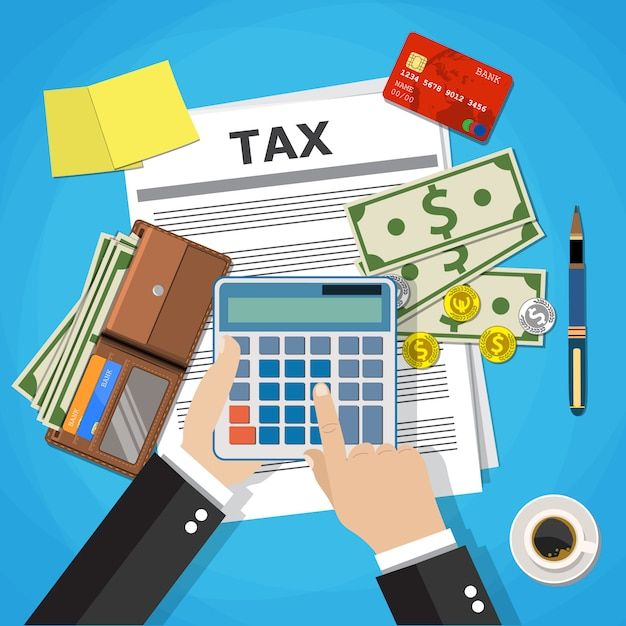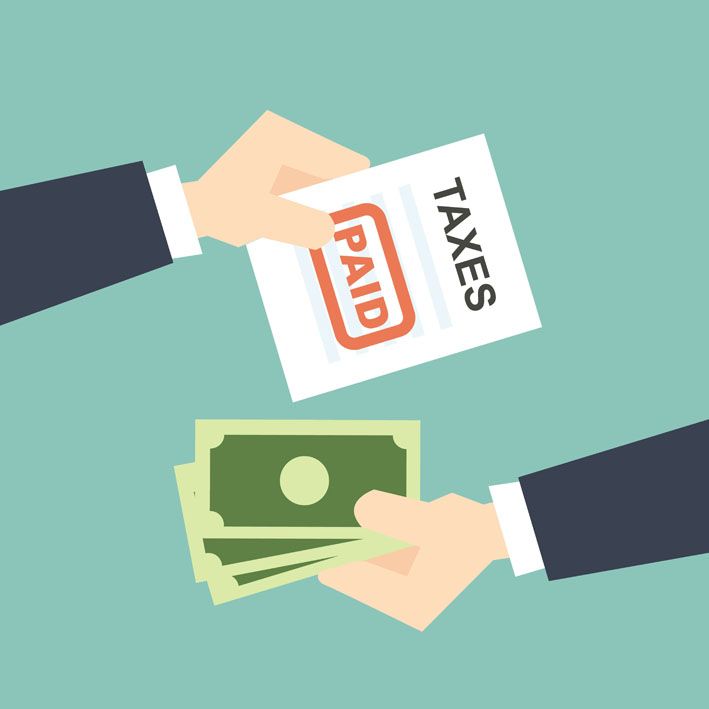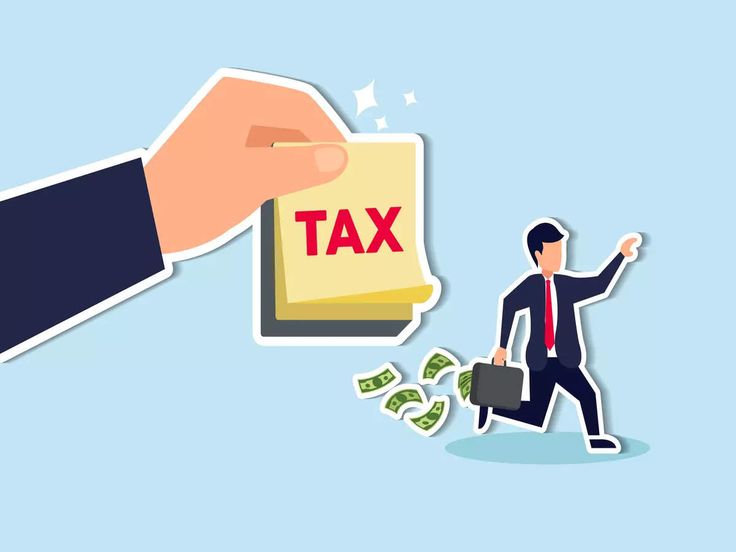So, you’ve taken a bold step into the digital world. Maybe you’re just starting a new online side hustle, or perhaps your small online business is beginning to see some real traction. You’re attracting customers, putting your creative ideas out there, and importantly, the income is starting to roll in – that’s absolutely fantastic! But with this exciting new income comes a question that often makes new entrepreneurs pause: what about tax?
For many, the idea of handling taxes when you don’t have a traditional employer to manage things can feel pretty confusing, even intimidating. It’s a completely different landscape compared to receiving a regular paycheck with taxes already taken out. So, we’re going to demystify the process and make it feel much more manageable, allowing you to focus on growing your venture and achieving your financial goals.

Why Your Online Income Has Tax Implications
When you earn money directly from clients or customers – whether you’re a freelancer, sell digital products, offer services, or run an e-commerce store – you’re generally considered “self-employed” by tax authorities. This is different from being an employee whose taxes are typically withheld from each paycheck. As a self-employed individual, you become responsible for paying your own contributions towards things like Social Security and Medicare, which are often grouped under “self-employment tax.”
It’s important to understand that this isn’t just for huge corporations or established businesses. Even a seemingly small side hustle can trigger tax obligations once your net income (what you earn after expenses) reaches a certain level. For instance, in countries like the US, if your net earnings from self-employment are $400 or more, you’ll likely need to report it. Tax laws vary significantly by country and even by region, so it’s always smart to check the specific thresholds and rules for where you live. The key takeaway is: if you’re earning money outside of a regular job, tax responsibilities probably apply.
Key Tax Concepts for Online Earners
First, there’s a big difference between Gross Income and Net Income. Your gross income is the total money your online venture brings in before anything is taken out. Your net income, however, is what’s left after you subtract all your legitimate business expenses. This is a crucial distinction because, generally, you only pay taxes on your net income.

This brings us to Deductible Business Expenses: Your Tax Reducers! These are like your financial superheroes. They are costs that are directly and exclusively related to running your online business and can reduce the amount of income you pay taxes on. Think of them as the everyday costs of doing business. For online earners, common examples include:
- Website hosting, domain names, and premium website themes or plugins
- Software subscriptions for things like graphic design, project management, or even simple accounting tools
- Marketing and advertising costs, including social media ads or email marketing services
- Payment processing fees from platforms like Stripe, PayPal, or fees from freelance marketplaces
- A portion of your internet and phone bill if you use them for business
- Professional development like online courses or workshops that directly enhance your business skills
- Supplies specific to your business, especially if you sell physical products
Another important concept is Estimated Taxes. If you don’t have a regular employer automatically withholding taxes from your pay, you usually need to pay your taxes throughout the year in installments. In many countries, this often means making payments every three months (quarterly). The reason is simple: tax authorities prefer to receive their share as you earn it, rather than waiting for one massive payment at the end of the year. Paying estimated taxes helps you avoid a huge, unexpected tax bill and potential penalties when tax season arrives. You might also encounter specific tax forms related to self-employment, such as Schedule C if you operate as a sole proprietor in the US.
Staying Organized All Year
The secret to stress-free taxes for online income boils down to one powerful word: organization. First, separate your business finances. This is perhaps the single most impactful step you can take. Set up a dedicated bank account specifically for your online business income and expenses. It keeps your personal and business money clearly distinct.
Next, track everything – both your income and your expenses. This isn’t just busywork; it’s the foundation for accurately calculating your net income and ensuring you claim all the legitimate deductions you’re entitled to. You don’t need fancy software to start. A simple spreadsheet (with columns for Date, Description, Category, Income/Expense, and Amount) works perfectly. As your online earnings grow, you might explore user-friendly accounting software like Wave Apps or a basic version of QuickBooks Self-Employed, which can automate much of this. Remember to categorize your expenses as you go, putting costs into buckets like “Software,” “Marketing,” or “Supplies.”
 Always keep good records. This means saving digital or physical copies of all your receipts, invoices, and bank statements for every business transaction. If you’re using digital payment platforms or software, most will keep these records for you. But it’s always good practice to have your own organized backup system.
Always keep good records. This means saving digital or physical copies of all your receipts, invoices, and bank statements for every business transaction. If you’re using digital payment platforms or software, most will keep these records for you. But it’s always good practice to have your own organized backup system.
Finally, and perhaps most importantly, set aside money for taxes. This is the golden rule for anyone self-employed. For every payment you receive for your online work, immediately transfer a percentage of it into a separate, dedicated savings account. A common recommendation is to set aside anywhere from 25% to 35% of your income. Its depending on your total earnings and your country’s tax rates.
Making Sense of Tax Season (When It Comes)
When it’s time to actually file your taxes, the hard work you put into organization throughout the year will pay off immensely. Your first step will be to gather all your records. Those meticulously tracked income and expense summaries, along with your saved receipts and statements. Then, you’ll calculate your net income by subtracting your total deductible expenses from your total gross income. If you’ve been setting aside money for estimated taxes, you’ll simply make those payments according to the deadlines. Which are typically quarterly, but always check your local tax authority’s website for exact dates.
When it comes to filing your return, you generally have two main options. Many online earners choose to DIY with tax software. Tools like TurboTax Self-Employed or H&R Block Online are designed to walk you through the process. They ask you questions about your income and expenses, and even help you identify potential deductions. They can be a great way to learn the ropes. Alternatively, as your online business grows becomes more complex, you might consider hiring a tax professional like an accountant or a Certified Public Accountant (CPA). They can offer personalized advice, ensure you’re claiming all eligible deductions. And handle the filing for you, giving you peace of mind.
Common Tax Mistakes for Online Earners to Avoid
While we’re talking about making things easier. Let’s touch on some common tax mistakes new online earners often make, so you can steer clear of them:
- Not setting aside money for taxes: This is the most common pitfall and leads to the biggest shocks. Always put money aside as you earn it.
- Mixing personal and business finances: Using the same bank account for everything makes tracking nearly impossible. And it can lead to missed deductions or audit headaches.
- Failing to track all income and expenses: Guessing at numbers at tax time means you’ll either overpay or miss critical information.
- Missing out on legitimate deductions: If you don’t track your expenses, you won’t know what you can deduct, leaving money on the table.
- Ignoring tax deadlines: Whether for estimated payments or your annual return, missed deadlines can result in penalties.
- Not understanding basic tax rules: While you don’t need to be an expert, a fundamental understanding of how self-employment is taxed in your region is essential.
Your Growth Journey Continues Now
Marketing your online business and generating income is an incredible accomplishment. By taking the time to understand online income taxes, you’re not just complying with the rules. You’re truly empowering your finances. It might seem like a complex part of finance. But with consistent organization and a few simple steps, it’s completely manageable.
Understanding your tax obligations gives you genuine confidence and control over your hard-earned money. When you manage your taxes efficiently, you free up more capital for your broader financial goals. This means more money available for things like paying down debt, building your savings, making smart investments in traditional markets, or even strategically exploring the exciting world of cryptocurrency that many young adults are curious about.
So, what’s the very first step you’ll take to get your online income taxes organized? Share your thoughts in the comments below – we’re building a community of financially empowered individuals ready to conquer their goals!



